Click for more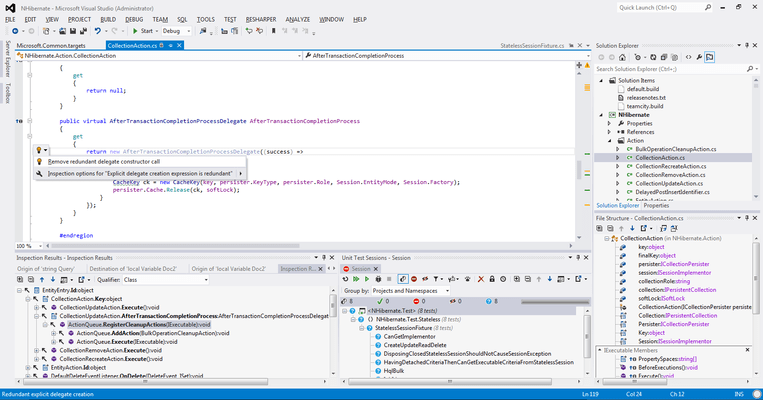
Click for more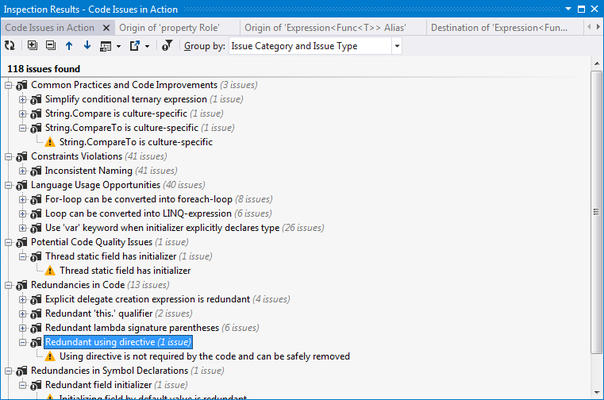
All Code Issues in a Solution Folder
As part of code review, ReSharper can display all code issues that it detects in a certain folder, project, or even in the entire solution. You can then either fix detected issues yourself or share ReSharper inspection results with relevant developers.
Click for more
Inappropriate Static Member Access
ReSharper detects access to a static member of a type via its derived type and suggests using base class qualifier instead.
Click for more
Inconsistent Method Naming
ReSharper detects that a method name doesn't respect accepted naming conventions and suggests renaming it to use UpperCamelCase.
Click for more
Parameter Type too Specific
ReSharper detects that a parameter could be of a more generic type and suggests changing it to IEnumerable<T>.
Click for more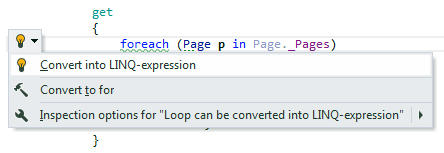
Use LINQ Instead of a Loop
ReSharper detects a foreach loop that can be converted into a LINQ query and suggests to do so for the sake of code compactness and readability.
Click for more
Redundant Register Directive
ReSharper detects that a directive registering a user control in an ASP.NET markup file is redundant and suggests removing it, as well as any other unused directives in that file.
Click for more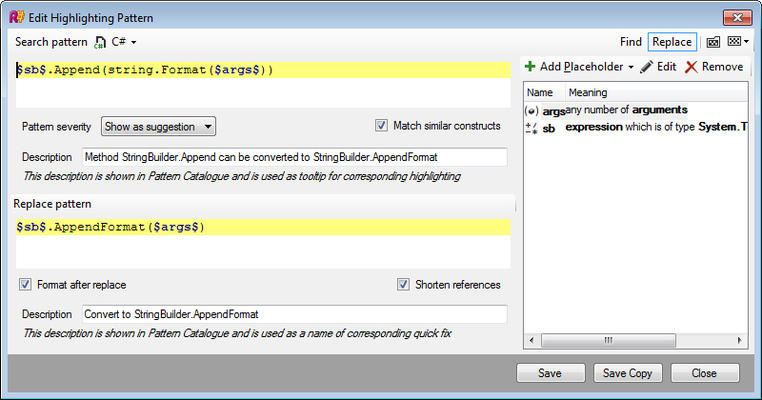
Structural Search and Replace
Even if ReSharper doesn't detect code that you know is wrong, you can write a search pattern describing the code smell that you want to find, and a replace pattern that defines how to improve upon that code smell. Essentially, you're writing your own code inspections and quick-fixes.
Click for more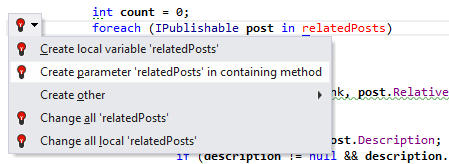
Creating Code from Usage
When ReSharper detects code that it can't find a matching declaration for, it offers multiple ways to create the declaration. Depending on the context, suggestions may include creating a field, parameter, class, interface, and other language entities.
Click for more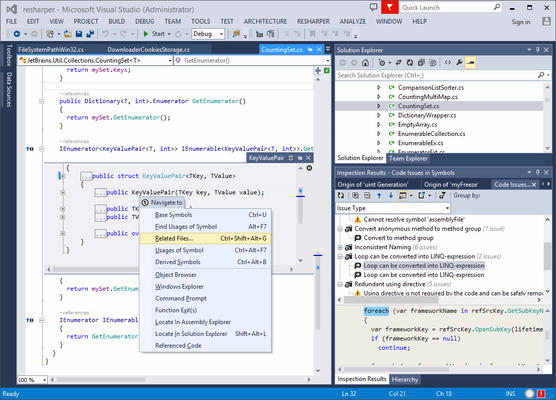
ReSharper Works Smoothly in VS
All ReSharper functionality is available in Visual Studio.
![]()
![]()
![]()
![]()
![]() (13)
(13)


















